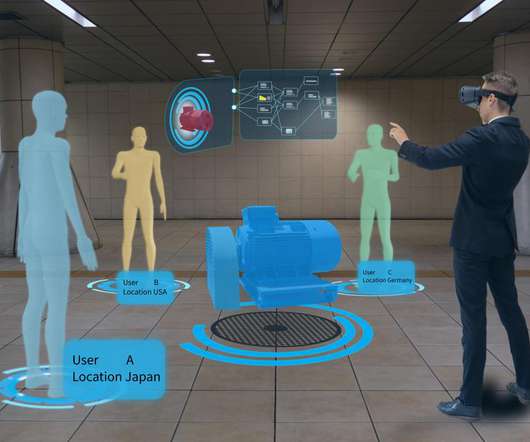What Is The Job Metaverse Is Trying To Do?
The Horizons Tracker
FEBRUARY 22, 2022
That we’re still largely waiting for such an immersive world to take hold, despite much-hyped initiatives, such as Second Life, perhaps underlines the difficulties the technology has had in keeping pace with such a vision. Digital twins. It’s a market that is already worth $3.1 You simply cannot do that with 4G or with Wi-Fi.
















Let's personalize your content